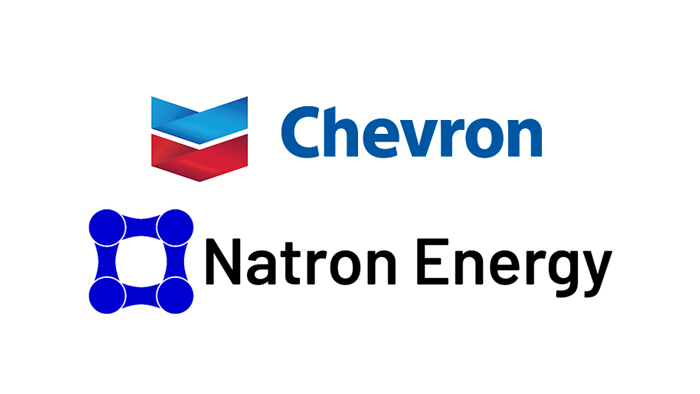
Natron Energy announces strategic investment by Chevron Technology Ventures
Natron Energy, a developer and provider of disruptive new battery products using Prussian Blue electrode chemistry, has closed a strategic investment by Chevron Technology Ventures (CTV) to support the development of stationary energy storage systems for demand charge management at electric vehicle (EV) charging stations.
Natron Energy will adapt its battery technology, originally developed for data center and utility-scale applications, to meet the power requirements of the emerging EV fast charging market.
“Chevron Technology Ventures is excited about the opportunity to support Natron Energy’s development of high-performance energy storage systems,” said Jesse Teichman, who led the investment by CTV. “The high-power density and fast charging time of Natron’s unique battery technology make it an attractive storage solution for the EV station of the future.”
Prussian blue dye, commonly used in blueprints, stores and releases energy in the form of sodium ions. Unlike the electrode materials found in most lithium-ion batteries, Prussian blue enjoys a widespread availability and low cost that make batteries based on Prussian blue electrodes an economically attractive, environmentally friendly technology.
“This investment furthers CTV’s objective to foster and support the innovation that will enable the next generation of energy products and services,” said Barbara J. Burger, CTV president.
Natron’s patented technology uses Prussian blue pigments in both the positive and negative electrode of the battery. Prussian blue has a unique structure and composition that allow it to store energy much more rapidly and reversibly than other types of battery electrodes. For this reason, batteries based on Prussian blue can be fully charged and discharged tens of thousands of times at very high power. This has allowed Natron to build the first battery in which chemistry does not limit the lifetime of the system, opening up new opportunities for energy storage to
support EV charging, renewables such as solar and wind, and industrial applications. In addition, Natron’s batteries provide improved safety compared to incumbent technology as they are nonflammable during overcharge, hard short circuit, nail penetration, and under external heating to over 200° C.
“Vehicle electrification will be one of the defining economic trends of the next decade. Widespread EV adoption depends in part on technologies that enable ubiquitous fast charging and that mitigate drivers’ range anxiety. As a global leader in transportation energy services, Chevron has recognized this,” said Colin Wessells, CEO at Natron Energy. “We are thrilled that CTV has chosen to support Natron. This investment provides a terrific boost to us as we develop and demonstrate energy storage products that will make fast charging stations a reality.”
According to the U.S. Department of Energy, access to fast charging stations, in combination with the recent increase in EV range, has reduced range anxiety associated with battery electric vehicles and may accelerate EV adoption. However, there are high electricity delivery costs for high power fast-charging stations. One potential technology solution for fast charging stations may be the use of stationary batteries to supplement demand for grid power.
Natron Energy is developing battery products based on a unique Prussian blue chemistry for a wide variety of energy storage applications ranging from critical backup power systems, material handling, behind-the-meter applications, and renewables support. Natron’s battery offers higher power density, faster recharge, and significantly longer cycle life than incumbent technologies. Natron builds its batteries using commodity materials on existing cell manufacturing lines.
Natron was founded as Alveo Energy in 2012 as a spin-out from research originally performed at Stanford University. Natron’s mission is to transform industrial and grid energy storage markets by providing customers with lower cost, longer lasting, more efficient, safer batteries. Natron is backed by leading venture capital investors and has received support from the U.S. Department of Energy’s Advanced Research Projects Agency-Energy (ARPA-E).
Formed in 1999, CTV pursues new business solutions and externally-developed technologies that have the potential to enhance the way Chevron produces and delivers affordable, reliable and ever-cleaner energy. CTV fosters innovation outside and inside Chevron, supporting vibrant startup ecosystems externally and championing technology integration and innovation internally.
Through its technology deployments and venture capital portfolio, CTV has supported a wide range of pioneering companies and technologies and is helping shape the future of energy.










